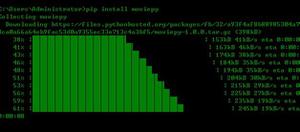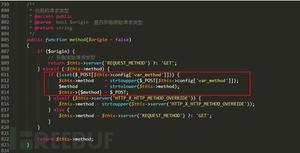Python如何进行词频统计?3种方法教给你
![Python如何进行词频统计?3种方法教给你[Python基础]](/wp-content/uploads/new2022/20220602jjjkkk2/2340211003_1.jpg)
前言
本文的文字及图片来源于网络,仅供学习、交流使用,不具有任何商业用途,如有问题请及时联系我们以作处理。
以下文章来源于快学Python ,作者小小明
Python爬虫、数据分析、网站开发等案例教程视频免费在线观看
https://space.bilibili.com/523606542

数据准备
import jiebawith open(
"D:/hdfs/novels/天龙八部.txt", encoding="gb18030") as f:text
= f.read()with open(
"D:/hdfs/novels/names.txt", encoding="utf-8") as f:for line in f:if line.startswith("天龙八部"):names
= next(f).split()breakfor word in names:
jieba.add_word(word)
# 加载停用词
with open("stoplist.txt", encoding="utf-8-sig") as f:
stop_words = f.read().split()
stop_words.extend(["天龙八部", "
", "u3000", "目录", "一声", "之中", "只见"])
stop_words = set(stop_words)
all_words = [word for word in cut_word if len(word) > 1 and word notin stop_words]
print(len(all_words), all_words[:20])
结果:
216435 ["天龙", "释名", "青衫", "磊落", "险峰", "行玉壁", "月华", "明马", "疾香", "幽崖", "高远", "微步", "生家", "子弟", "家院", "计悔情", "虎啸", "龙吟", "换巢", "鸾凤"]统计词频排名前N的词
原始字典自写代码统计:
wordcount = {}for word in all_words:wordcount[word]
= wordcount.get(word, 0)+1sorted(wordcount.items(), key
=lambda x: x[1], reverse=True)[:10]
结果:

使用计数类进行词频统计:
from collections import Counterwordcount
= Counter(all_words)wordcount.most_common(
10)
结果:

使用pandas进行词频统计:
pd.Series(all_words).value_counts().head(10)
结果:

从上面的结果可以看到使用collections的Counter类来计数会更快一点,而且编码也最简单。
分词过程中直接统计词频
Pandas只能对已经分好的词统计词频,所以这里不再演示。上面的测试表示,Counter直接对列表进行计数比pyhton原生带快,但循环中的表现还未知,下面再继续测试一下。
首先使用原生API直接统计词频并排序:
%%timewordcount
= {}for word in jieba.cut(text):if len(word) > 1 and word notin stop_words:wordcount[word]
= wordcount.get(word, 0)+1print(sorted(wordcount.items(), key=lambda x: x[1], reverse=True)[:10])
结果:
[("段誉", 2496), ("说道", 2151), ("虚竹", 1633), ("萧峰", 1301), ("武功", 1095), ("阿紫", 922), ("阿朱", 904), ("乔峰", 900), ("王语嫣", 877), ("慕容复", 871)]Wall time:
6.04 s
下面我们使用Counter统计词频并排序:
%%timewordcount
= Counter()for word in jieba.cut(text):if len(word) > 1 and word notin stop_words:wordcount[word]
+= 1print(wordcount.most_common(10))
结果:
[("段誉", 2496), ("说道", 2151), ("虚竹", 1633), ("萧峰", 1301), ("武功", 1095), ("阿紫", 922), ("阿朱", 904), ("乔峰", 900), ("王语嫣", 877), ("慕容复", 871)]Wall time:
6.21 s
可以看到Counter在循环中计数时反而慢了一丁点,但由于Counter类整体性能更佳,编写起来简单,所以一般都用Counter进行统计计数。
以上是 Python如何进行词频统计?3种方法教给你 的全部内容, 来源链接: utcz.com/z/537770.html





